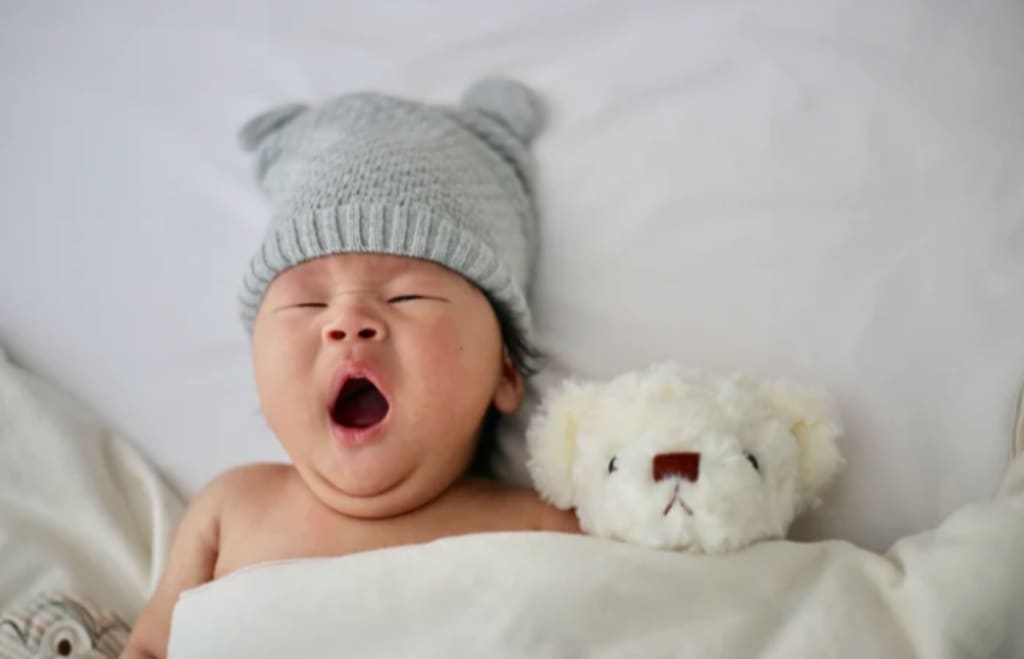The importance of baby sleep
All living creatures need sleep. Sleeping gives people and all living creatures the time for the body to recuperate and regenerate. Lion’s needs 16 to 18 hours of sleep, while primates, ten to twelve hours of sleep. Humans need on average six to eight hours sleep to rejuvenate. Human babies need a full eight hours of sleep and naps in between.

All living creatures need sleep. Sleeping gives people and all living creatures the time for the body to recuperate and regenerate. Lion’s needs 16 to 18 hours of sleep, while primates, ten to twelve hours of sleep. Humans need on average six to eight hours sleep to rejuvenate. Human babies need a full eight hours of sleep and naps in between.
The body uses sleep as a way to regenerate cells and refresh the brain and overall aids in the development of our body, mind, and health. During our sleep, the human body can regenerate hair follicles, fingernails, toenails and even the outer covering of the skin. This happens because of the automatic pilot that is built into our bodies. People tend to think that the body only needs to recharge spent energy on the day’s work but in truth the body works the regeneration cycle much faster when the brain does not control much action.
Babies therefore need their sleeping time to develop muscles, limbs, and skeletal structure. In order to achieve a good night’s sleep for your baby, it is important that your baby have comfortable and inviting bedding. The secret to a good bed is one that feels just right. Beds that are to big may make your little one feel insecure. Your baby’s bed should be cozy and offer security for them to get a good night sleep. Selecting the proper bedding should also be a concern. The bedding should be easy to touch and feel cozy. Bedding that is to stiff or even to fluffy decreases your baby’s comfort level and therefore reduces his/her sleep time. We would want our babies to enjoy their beds and consider it a place of security.
Try to make your baby’s sleeping experience a pleasant one. Bedding should be inviting to the eye. There are so many wonderful patterns and fabrics on the market today that choosing the right bedding should not be to difficult. Remember that your baby needs enough rest to stimulate his/her growth and development and when this is achieved, your baby can reach his full potential.
Tips on improving their sleep
It’s completely understandable that it may be difficult to get your baby to sleep for the recommended amount of time, or to keep things consistent. Some little ones may wake at regular times, fall back to sleep easily and start sleeping through the night at 5 months; others may have sporadic sleep patterns, cry and fuss when they should be sleeping and not sleep through the night until they are past their first year. This does not mean you are any better or worse at being a parent – you’re doing a great job.
The current recommendation from the UK Department of Health, the NICE Guidelines, the NHS and the American Association of Paediatrics is that, “the safest place for your baby to sleep for the first six months is in a cot in the same room as you.” After that, you may move them to their own room (if possible). See our blog post on co-sleeping for more.
We’ve put together a few tips that might help you if you’re having problems with your baby’s sleep.
Create a comfortable sleep environment
To create a comfortable sleep environment, it’s important that your baby isn’t too hot or too cold. The Lullaby Trust recommends that the room temperature should be between 16 – 20°C, and you should use lightweight bedding – “Babies who are unwell need fewer, not more bedclothes.” And “Babies do not need to wear hats indoors, nor sleep under a duvet or quilt.” Put your hand on their back or neck to feel if they are too warm – they may be clammy or sweaty if they are.
Other things that can create a comfortable environment are keeping it very quiet, or using white noise or lullabies to soothe your baby to sleep. Use these sounds only before bed to help condition your baby to learn the difference between night and day / sleep and awake time. You also do not want to have any fluorescent light around your baby before bedtime or during night feeds and changes, so a dim nightlight that’s free from blue light will reduce disturbances and help them to sleep better.






Comments
There are no comments for this story
Be the first to respond and start the conversation.